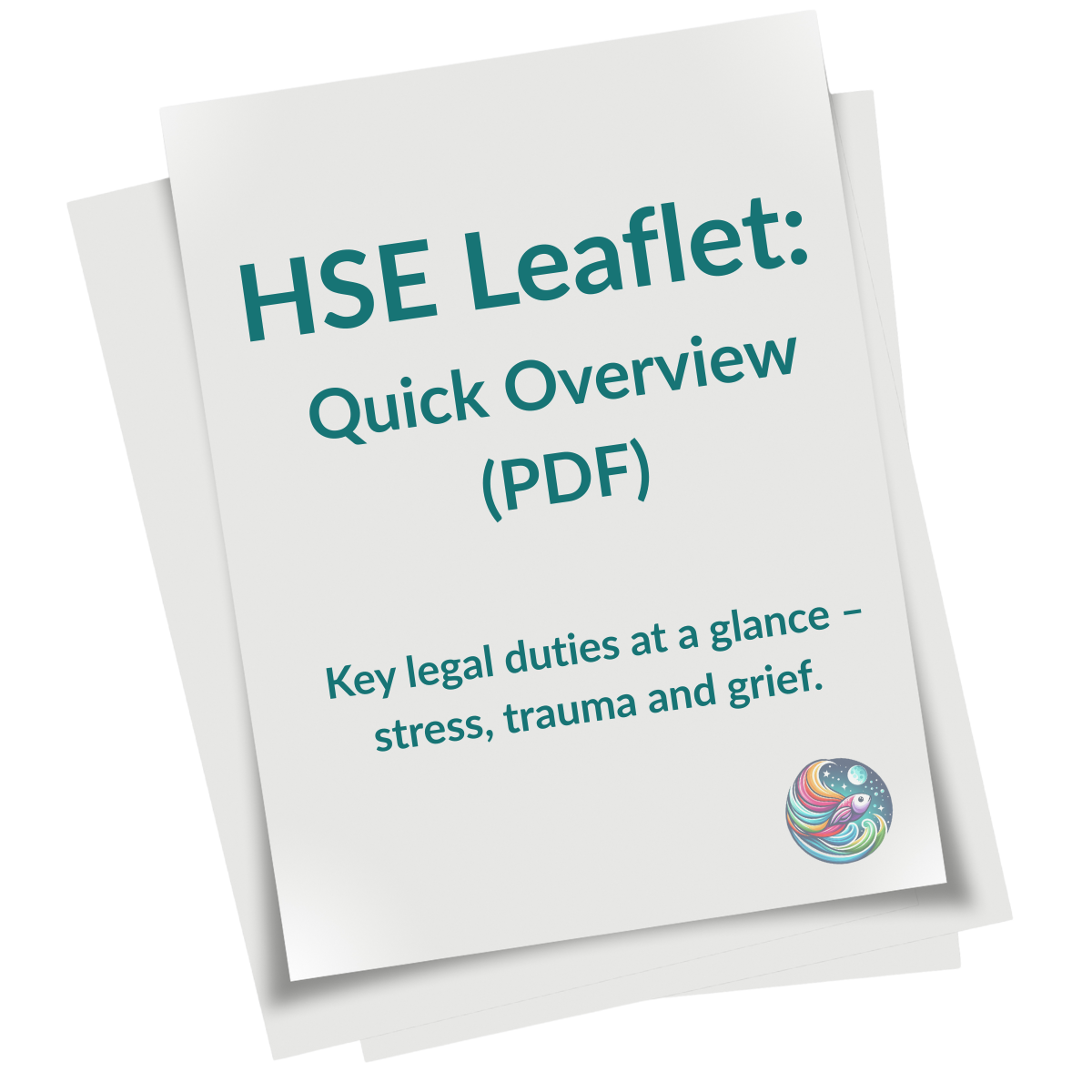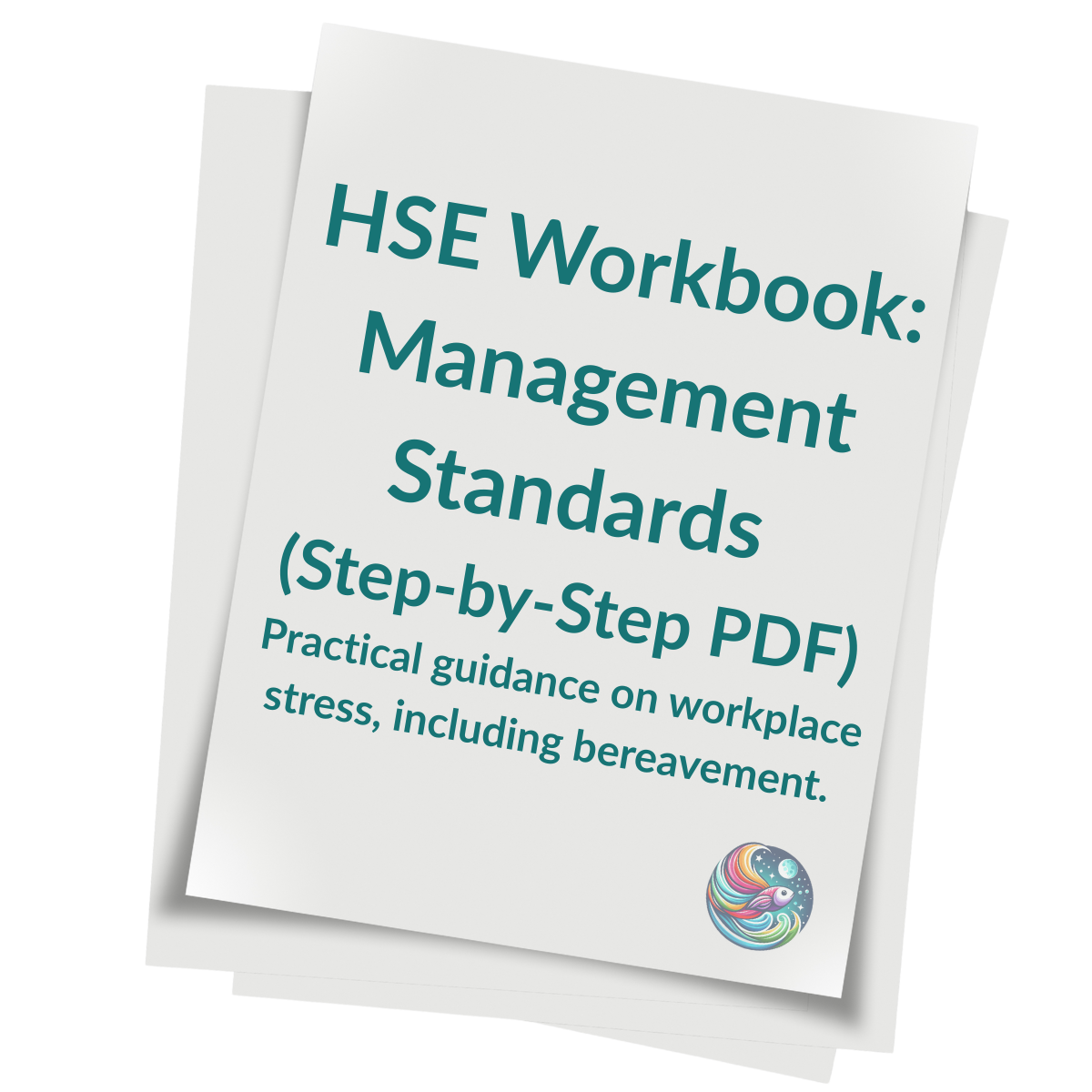
Navigating Grief at Work: Supporting Legal Duties with Compassion
The Flying Fish Company® supports UK organisations to meet their HSE responsibilities in a way that’s real, practical and human.
Our grief awareness training helps leaders fulfil their duty of care when employees are grieving by:
✅ Supporting psychological safety in the workplace
✅ Encouraging clear, compassionate communication
✅ Promoting trauma-aware leadership practices
✅ Aligning with health and safety law and duty of care expectations
Unchecked grief can undermine safety — not just wellbeing.

Why HSE Matters when Grief Hits the Workplace
Every UK employer has a legal obligation to protect the health, safety and wellbeing of their staff.
That includes mental health, stress, and the impact of bereavement, as outlined in the HSE Management Standards for Work-Related Stress.
When grief is handled poorly at work, the risks aren’t just emotional – they’re organisational:
🟠 Increased stress, burnout and absence
🟠 Poor performance, conflict and presenteeism
🟠 Unsafe working practices caused by distraction or distress
🟠 Higher turnover and reputational risk
The official HSE documents below explain your legal duties around workplace stress, trauma, and grief — including bereavement.

Why ‘Psychological Safety’ Isn’t Just a Buzzword
When an employee is grieving, how supported they feel at work can shape their entire recovery.
Under health and safety law, UK employers are expected to reduce risks to mental health — including the effects of stress, trauma, and poor leadership responses.
Explore how the HSE 5Rs Support Grief-Aware Leadership Next ⬇️

Working Minds: The 5Rs Framework
Based on HSE's national campaign for stress and mental health at work
The 5Rs are a simple way to help organisations respond thoughtfully when grief or stress impacts the workplace. Below, we’ve mapped how The Flying Fish Company®’s training supports each “R” with real, practical actions.
How Our Training Supports Each of the 5Rs
-
What HSE says: "Reach out and have conversations"
In practice: Training equips managers with gentle, practical language for checking in, even when they’re unsure what to say after a bereavement. -
What HSE says: "Recognise the signs and causes of stress"
In practice: We help leaders spot hidden grief symptoms like presenteeism or changes in behaviour — and respond humanely. -
What HSE says: "Respond to any risks you’ve identified"
In practice: Take clear, caring action - adjust workloads, offer flexibility and know when to involve extra support such as HR, Occupational Health or a Mental Health First Aider. -
What HSE says: "Reflect on actions you’ve agreed and taken"
In practice: Tools like reflective prompts and team check-ins help managers learn and adapt compassionately. -
What HSE says: "Make it Routine to check in on how people are feeling and coping"
In practice: We help embed grief awareness into supervision, peer processes, and everyday workflows — not just training events.
Why it matters:
When organisations align their response to grief and stress with frameworks like the 5Rs, everyone benefits. Teams become more confident, leaders feel equipped, and workplaces grow safer, more compassionate, and more resilient.
Put the 5Rs into Practice with Confidence
Start building a whole-team response to grief with trauma-informed training, shaped by lived experience.
Choose what’s right for your team:
🔵 Explore the Manager’s Toolkit
🔵 View the supportive Leadership Course







